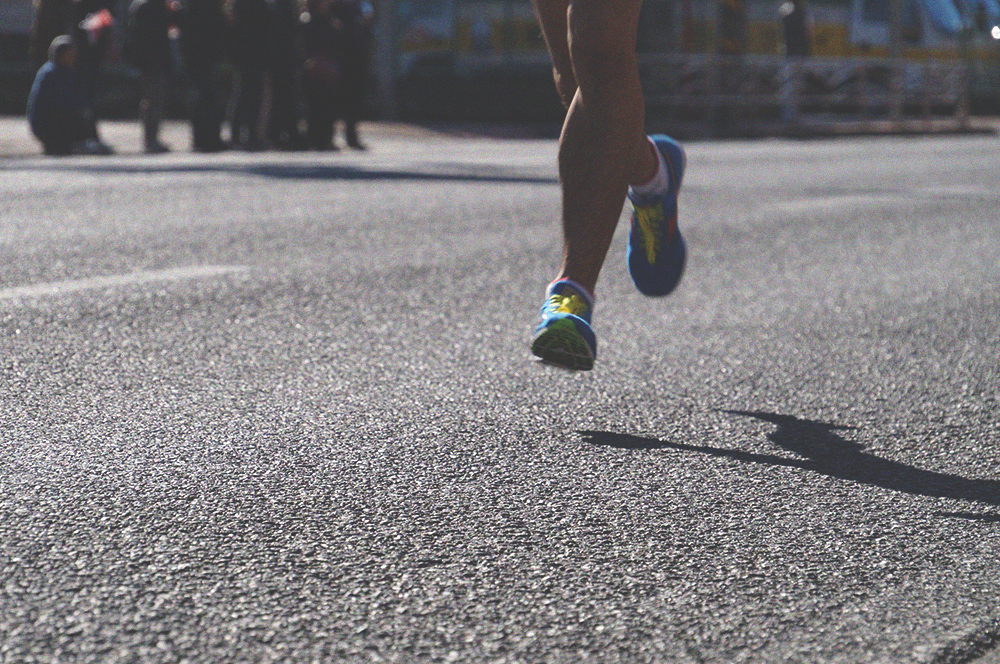Spring is just around the corner, and if you’re a runner that means one thing: gearing up for race season! From 13.1 and beyond, achieve your race goals with this hydration and nutrition game plan.
BY: CARA HARBSTREET, MS, RD, LD
No matter the distance on the road or the trail, nutrition should be an important piece of your training plan. Solidifying a nutrition and hydration strategy during training could be the key to crossing the finish line and crushing goals along the way.
While many runners are focused on logging miles and perfecting their training plan, many also overlook nutrition. This could lead to GI issues, dehydration or overhydration, weight gain during your training cycle, or more. Just like every runner has different needs, different distances have varying demands.
Check out what it takes to succeed at the half marathon, marathon, and ultra marathon distances:
HALF MARATHON (13.1 MILES)
The 13.1 mile distance is by far the most popular marathon distance. And for good reason! With training runs clocking in from 30 minutes to 90 minutes (or longer, depending on pace) it’s a manageable commitment for those with busy schedules. For shorter runs, the biggest challenge is not out-snacking your energy output. Very few changes to overall nutrition are needed.
It becomes more about balancing total nutrition and nailing the timing of meals and snacks to minimize GI symptoms and optimize recovery. For longer runs, the goal is 30-60 grams of carbohydrates (low fiber, low fat) before running. Follow up with more carbs plus 15-30 grams of protein afterwards.
Carbohydrates are the #1 fuel source so don’t be afraid to supply the energy you need! And everyone’s needs are different – runners benefit from 7 to 10 grams of carbohydrates per kilogram of body weight. Aim for a variety of high quality sources like whole grains, fruits, vegetables, and dairy products to fill the tank and stay fueled to perform your best.
When it comes to hydration, water is a great option – unless training for longer periods or hot, humid conditions, electrolyte replacement is not the greatest priority. Sports drinks, electrolyte tablets, or water plus fruit or balanced snack are all that’s needed to replace losses for the runs that do leave you covered in salty sweat.
MARATHON (26.2 MILES)
Training for endurance events centers around the long run, and marathon training is no different. Runs of 2 to 4 hours (or more) require well-timed nutrition to keep you from burning out before you’re finished. Training sessions that last this long deplete glycogen stores in the muscles and liver.
Glycogen is the stored form of energy that gets tapped during exercise. When the tank runs empty, you’ll need to “train” your gut too. Some runners avoid ingesting any food or fluids to avoid GI symptoms like cramping, bloating, or gas. You’ll want to test any strategy well before race day – try a variety of options and find what works best.
When the distance ramps up, so does the importance of overall nutrition. Exercise is slightly pro-inflammatory. After all, we are challenging the body to perform beyond what it does in a state of rest.
The longer the duration or the higher the intensity, the more the body needs a little extra support. Full marathon runners have higher needs for minerals (iron, zinc, magnesium, among others), vitamins (particularly Vitamin C and Vitamin E), and antioxidant-rich foods (fruits and vegetables, whole grains).
ULTRA EVENTS (26.2+ MILES)
Training for ultras is no easy task – 2 to 6 hours per day or double workouts are not uncommon. It’s nearly impossible to avoid creating a deep calorie deficit when training at this volume, so the first priority becomes damage control. Ultra runners become skilled at taking in nutrition and hydration while on the move. Who said running didn’t require hand-eye coordination?
Although I general stand by the “quality over quantity” approach there are exceptions to everything and this is one of them. High carbohydrate, low fiber foods consumed as tolerated are encouraged – nearly every ultra distance effort results in a deficit so there is little concern about consuming too much.
Adequate protein (about 20 grams) eaten every 3 to 4 hours while not running is also key to minimize lean muscle loss and set you up for recovery once your run is done.
Dehydration and its opposite, overhydration, are also a concern. Remember that the goal is to balance fluids and electrolytes to avoid displacing too many electrolytes without a replacement.
Sodium and potassium, as well as several others, are critical for controlling heart rate, muscle contractions, and fluid balance. Hydrating well beforehand and consistently sipping small amount during training can help runners avoid either scenario. Liquids that contain 6-10% carbohydrate and small amounts of electrolyte minerals are helpful.
While this barely scratches the surface for what it takes to truly optimize nutrition for distance running, it can serve as a crash course for some things to keep in mind. Whether you’re already deep in training, preparing for race day, or just considering adding a distance event in your future, remember to include nutrition as part of your plan to perform your best!
Cara Harbstreet, MS, RD, LD is a Kansas City-based Registered Dietitian helping individuals jumpstart their journey to wellness. By breaking the cycle of dieting, Cara focuses on creating sustainable lifestyle changes for people who are motivated to reclaim their health. Connect with Cara over at Street Smart Nutrition.

